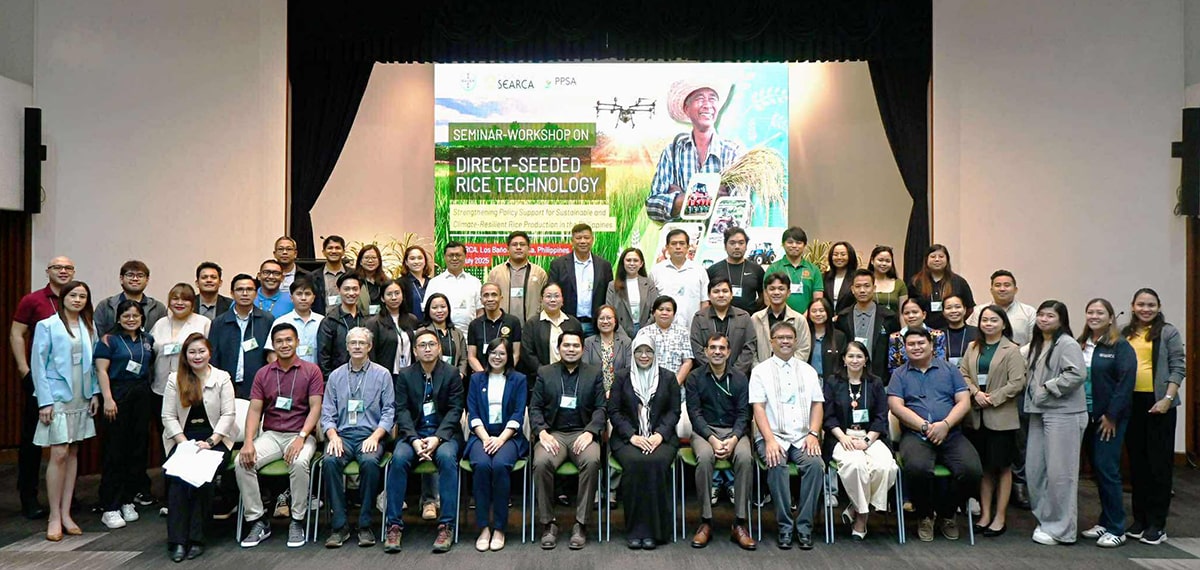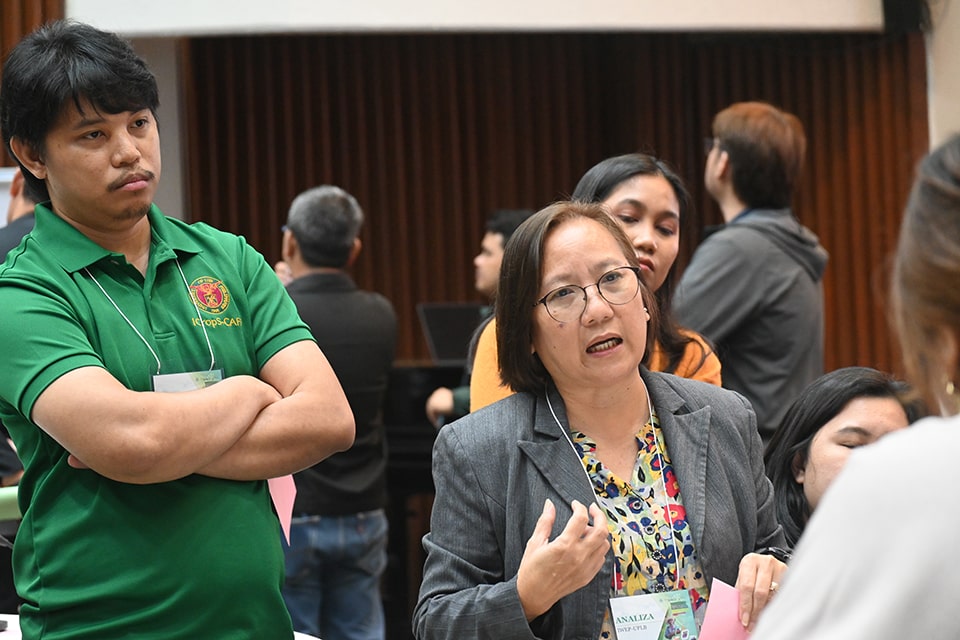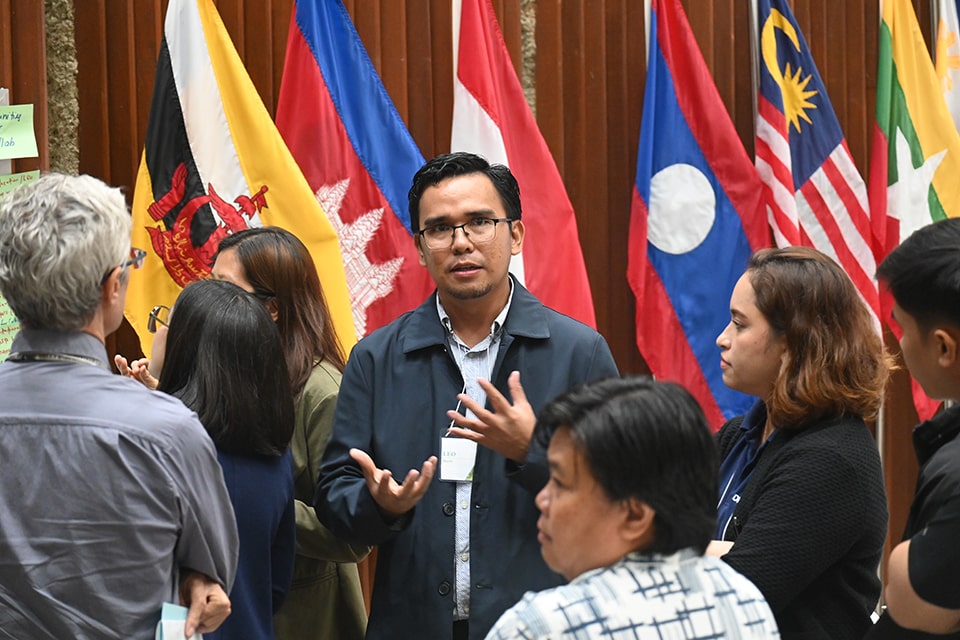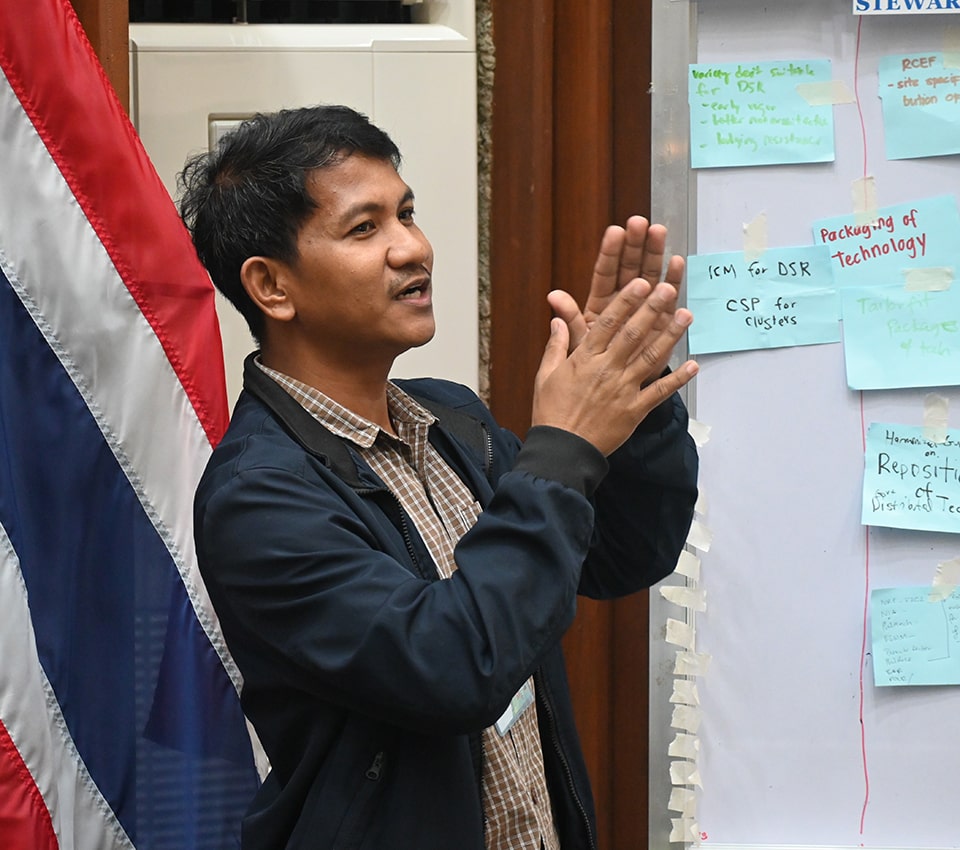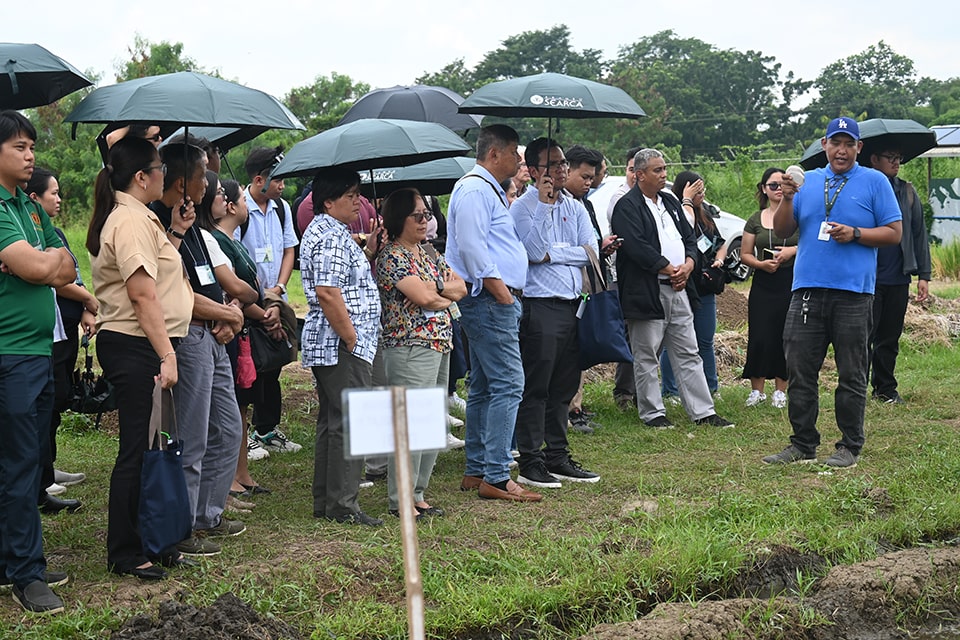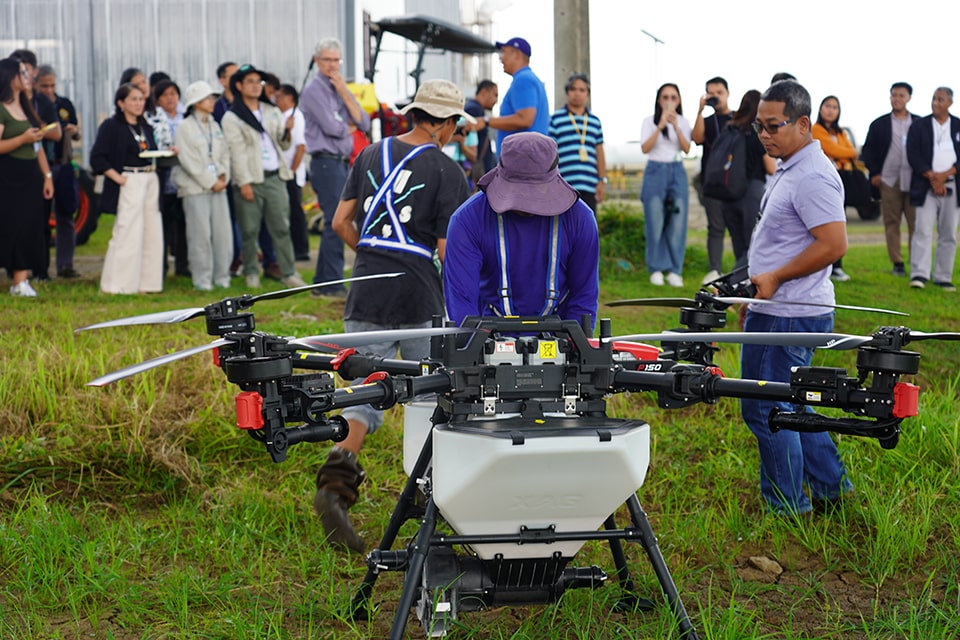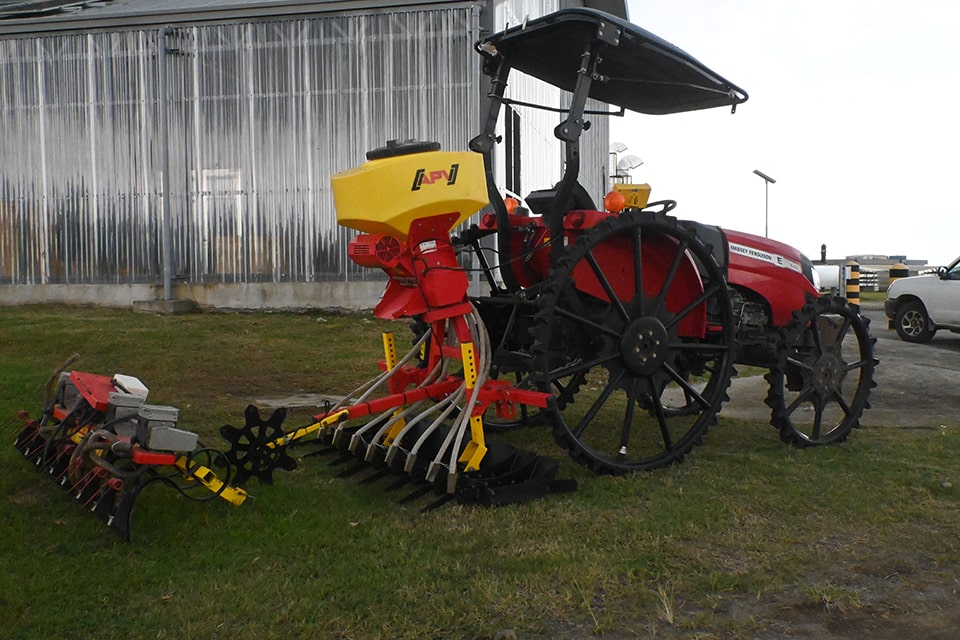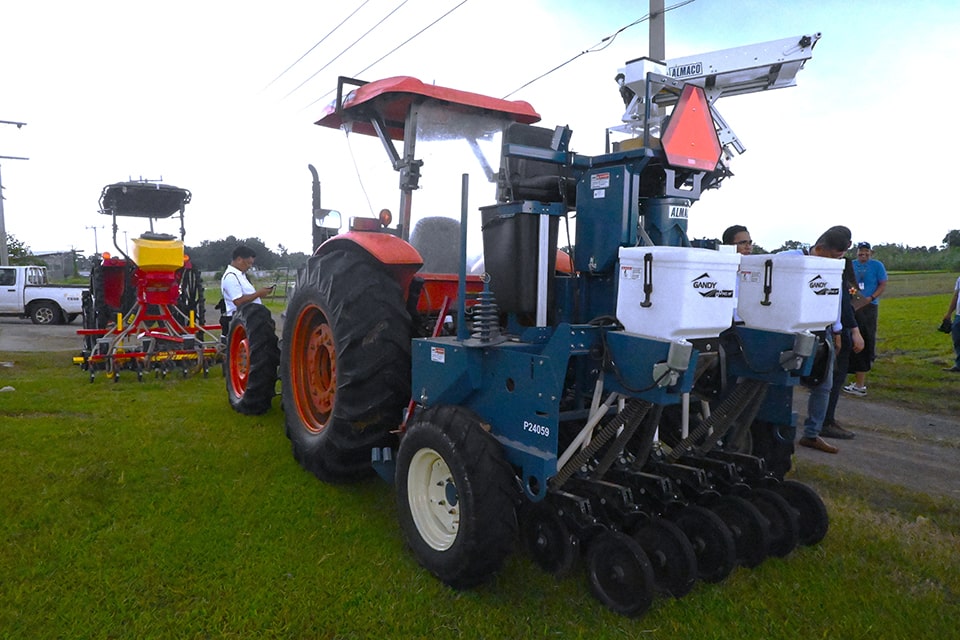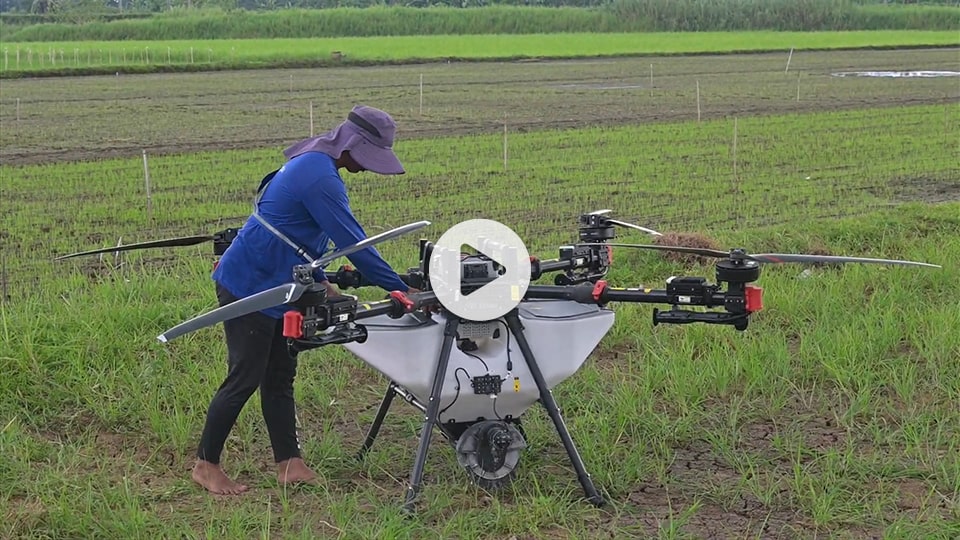LOS BAÑOS, Philippines — Multi-sector stakeholders from government, academe, industry, and farming communities gathered at the Southeast Asian Regional Center for Graduate Study and Research in Agriculture (SEARCA) on 8 August 2025 for the Seminar-Workshop on Direct-Seeded Rice (DSR) Technology: Strengthening Policy Support for Sustainable and Climate-Resilient Rice Production in the Philippines, jointly organized by Bayer CropScience Philippines, SEARCA, and the Philippines Partnership for Sustainable Agriculture (PPSA).
The seminar-workshop addressed the pressing challenges confronting the country's rice sector—labor shortages, climate change, high production costs, and the need to increase productivity while cutting greenhouse gas (GHG) emissions and water use—by promoting DSR as a viable, climate-smart alternative to traditional transplanting.
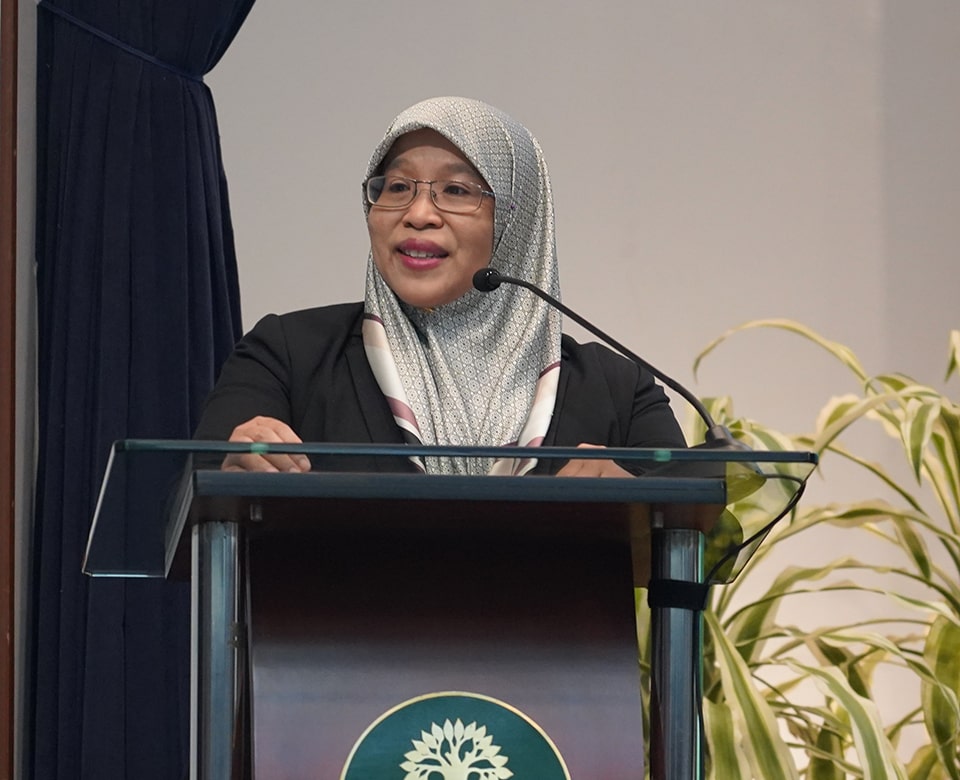
"The DSR system is a promising innovation to reduce production costs, improve water efficiency, lower greenhouse gas emissions, and enhance farmer livelihoods," said SEARCA Deputy Director for Programs Dr. Nur Azura binti Adam in her welcome remarks, calling for active participation to "help drive sustainability, resilience, and inclusive growth in the rice sector."
Rice under pressure
Rice remains the country's staple food and a source of livelihood for an estimated 2.4 million farmers. In 2023, the Philippines produced nearly 20 million metric tons of unmilled rice, ranking 8th globally. Yet the industry continues to grapple with high production costs, small-scale landholdings that hinder mechanization, and climate extremes.
The traditional method of transplanted puddled rice, while effective for weed control, consumes excessive labor, energy, and water, accounting for nearly 50 percent of production costs. The environmental toll is heavy as rice cultivation contributes 1.5 percent of global GHG emissions and 12 percent of methane emissions, while using over 40 percent of the world's irrigation water.
DSR as a climate-smart solution
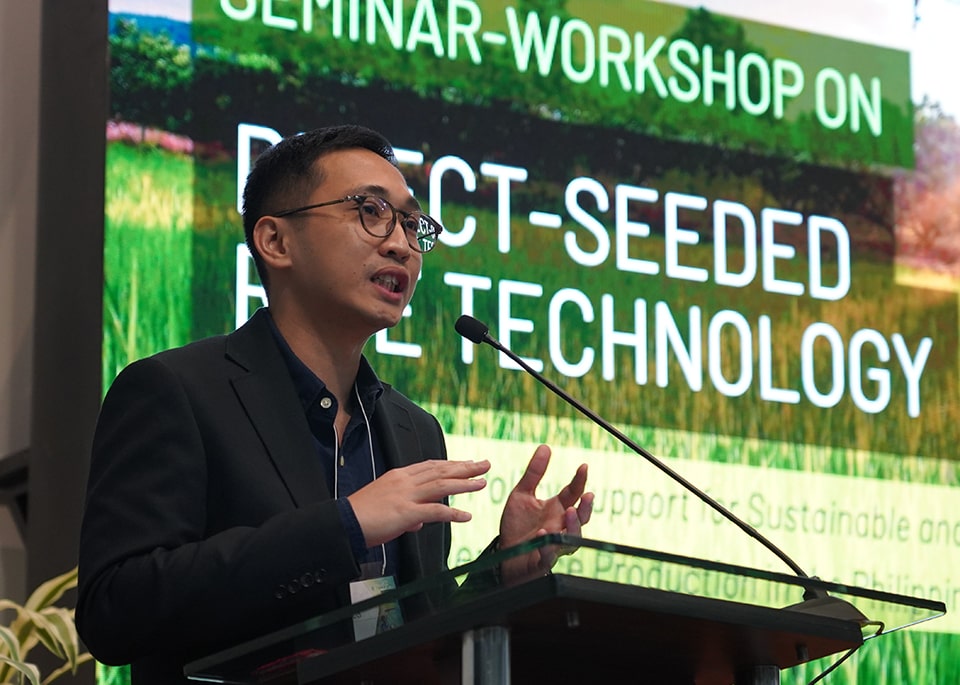
Mr. Cyrus Isles, Bayer CropScience Public Affairs Head, speaking on behalf of Ms. Nisha Sharma, described DSR as "not just a technique but a solution" to multiple challenges. He noted its potential to reduce water use by up to 40 percent, cut GHG emissions by 45 percent, and lower labor costs by half.
"This transition requires an ecosystem mindset," Isles stressed.
"It's not just about growing more, it's about growing better with less impact, more resilience, and greater value for every Filipino," he added.
Policy, research, and farmer perspectives
Deputy Director Ralph Alan Ceniza of Philippine Department of Agriculture (DA) National Rice Program outlined the industry's 2024–2025 outlook: a PHP 454 billion gross agricultural value, 19.09 million metric tons (MT) harvest from 4.64 million hectares, and a target of 90–95 percent rice self-sufficiency by 2028. He emphasized DSR's role in meeting productivity and environmental goals but acknowledged uneven adoption with 41.9 percent for broadcast seeders and only 0.3 percent for drum seeders in 2022.
"We must bridge the gap between traditional methods and sustainable technologies by engaging farmers, building capacity, and proving economic benefits," Ceniza said.
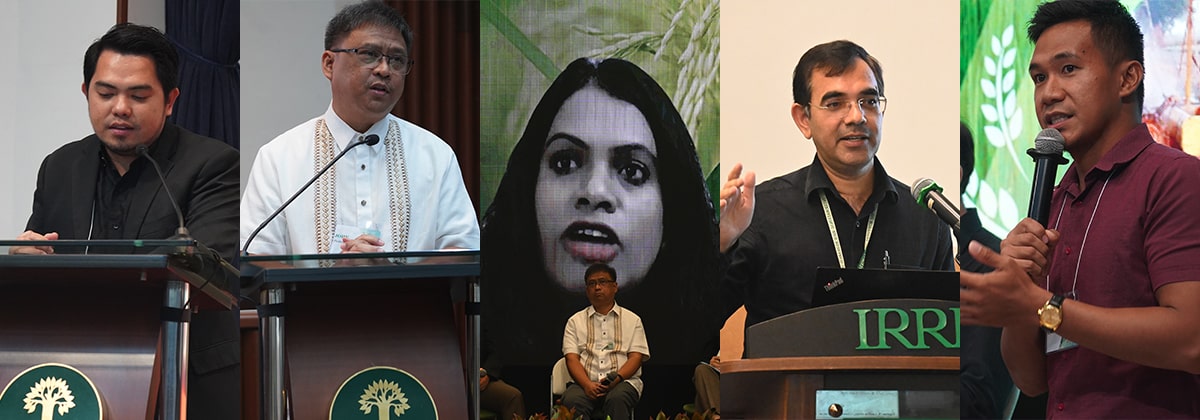 The resource speakers at the seminar-workshop on DSR technology were (from left): Deputy Director Ralph Allan Ceniza of the DA National Rice Program; Dr. John De Leon, PhilRice Executive Director; Ms. Vinny Gandham, Bayer CropScience DirectAcres Venture Lead; Dr. Virender Kumar, IRRI Senior Scientist and DSR Consortium Coordinator; and Mr. Christian Lexcher Cainglet, farmer DSR-adopter from Tarlac, Philippines.
The resource speakers at the seminar-workshop on DSR technology were (from left): Deputy Director Ralph Allan Ceniza of the DA National Rice Program; Dr. John De Leon, PhilRice Executive Director; Ms. Vinny Gandham, Bayer CropScience DirectAcres Venture Lead; Dr. Virender Kumar, IRRI Senior Scientist and DSR Consortium Coordinator; and Mr. Christian Lexcher Cainglet, farmer DSR-adopter from Tarlac, Philippines.
From the research side, Dr. John De Leon, Executive Director of the Philippine Rice Research Institute (PhilRice), reported that 48-49 percent of rice areas already use direct seeding. He said while yields may not yet surpass transplanted rice, DSR enables higher cropping intensity, potentially boosting annual production.
Ms. Vinny Gandham, Bayer DirectAcres Venture Lead, drew from India's experience, where DSR adoption grew from 100 hectares in 2021 to over 40,000 hectares in 2025, benefiting 15,500 farmers across 210 clusters.
"The cluster approach, tailored by geography and backed by mechanization and digital advisory, has been a game-changer," Gandham said, introducing Bayer's Rekta Ektarya Program in the Philippines to pilot similar strategies.
Farmer-champion Christian Lexcher Cainglet from Tarlac shared his perspective: "DSR fits my land's topography, sandy loam soil, and limited water. It saves labor, cuts costs, and adapts to climate change. This is not about laziness, it's about survival."
He urged the government to strengthen machinery provision, farmer training, and clustering programs.
On the other hand, Dr. Virender Kumar, Direct-Seeded Rice Consortium Coordinator and Senior Scientist at the Sustainable Impact Platform of the International Rice Research Institute (IRRI), highlighted climate-smart and precision DSR systems proven in Vietnam, Cambodia, and the Philippines. He emphasized their potential to close yield gaps, raise incomes, and lower GHG emissions through low seeding rates, proper management, and enabling policies.
Forging Ahead: Harnessing insights and strengthening collaboration
After the technical presentations, the discussions shifted from sharing knowledge to charting concrete steps forward through a panel discussion and the World Café session.
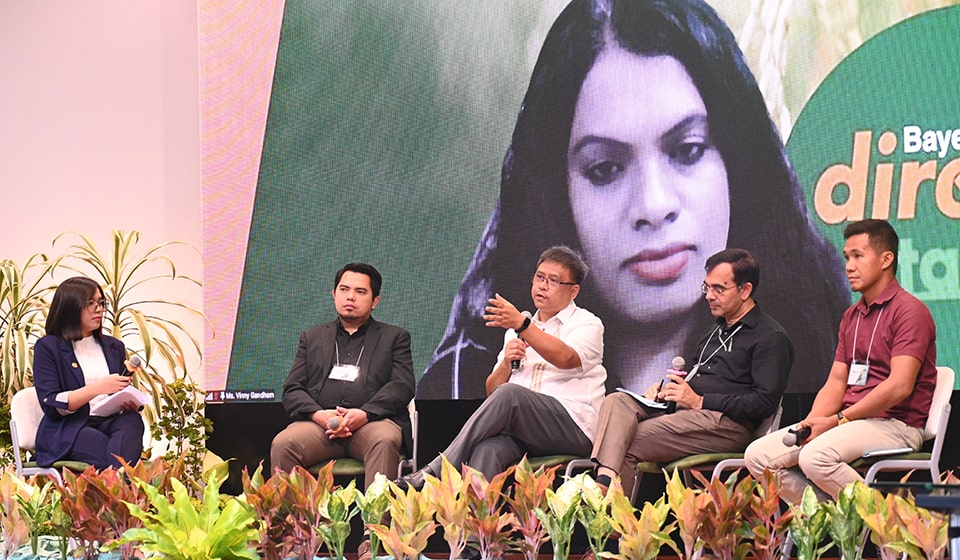
The panel discussion highlighted that DSR adoption is driven by water savings, reduced labor and costs, and climate resilience, with calls for stronger support through machinery provision, farmer training, research dissemination, and clustering programs. Experts stressed the need for site-specific practices, timely weed and pest management, field-driven research, improved techniques, digital tools, and lessons from India's clustering and farmer champion models to scale adoption and sustain farmer engagement. Government agencies, research institutions, and the private sector were urged to collaborate on integrated support systems for DSR adoption.
The World Café Session identified key barriers to DSR adoption: lack of location-specific varieties, limited capacity of farmers and Agricultural Extension Workers (AEWs); insufficient machinery access; weed and pest resistance; fragmented research; and weak policy, funding, and incentive support. Stakeholders highlighted collaboration opportunities among government, academe, industry; and development organizations to expand training; provide certified seeds and machinery; conduct targeted research; and deliver integrated technological, financial, and extension services.
Policy recommendations included site-specific technology packaging, variety development, farmer clustering, integrated crop management, expanded credit and insurance, sustained R&D funding, streamlined drone regulations, and a comprehensive DSR Development Plan for coordinated implementation.
Additionally, field demonstrations showcased innovations from iron-coated seeds to mechanized and drone-assisted sowing, underscoring the theme of "planting smarter."
In her closing remarks, Dr. Gerlie Tatlonghari, SEARCA Program Head for Research and Thought Leadership, expressed optimism: "The future of DSR in the Philippines is bright. Let us champion it not just as a technical shift, but as a strategic move toward transforming Philippine agriculture into a more sustainable, resilient, and empowering sector."
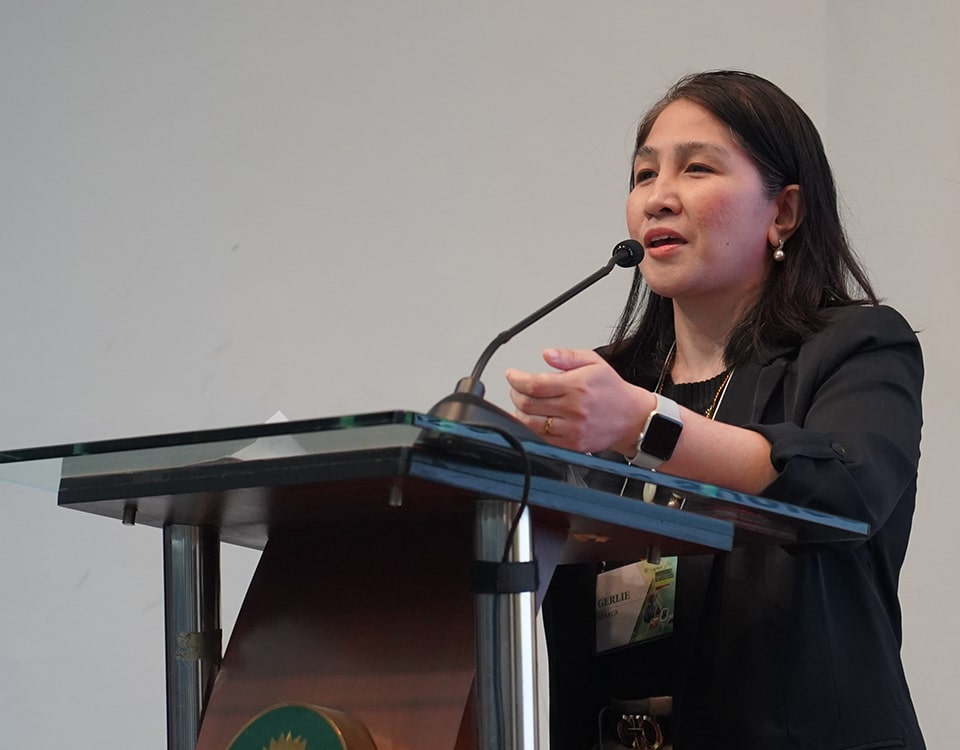
With policy recommendations, pilot programs, and growing farmer champions, the seminar-workshop marked another step toward mainstreaming DSR to transform not just how rice is planted, but how the Philippines approaches food security in a changing climate.
